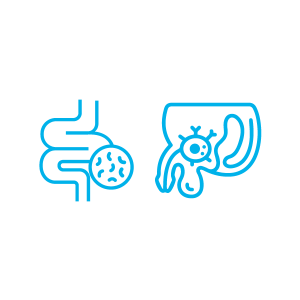If you’re looking for peace of mind, consider a hereditary cancer test. Determining your hereditary risk to developing prostate and colorectal cancer can be a difficult process to complete. Now, with the Test4 Test, you can find out if you are at genetic risk using a simple saliva sample.
This test can help you better understand your risk of developing prostate or colon cancer and help set your priorities for prevention. Our Consultant will review your family history with you and discuss which hereditary cancer tests are best for you.




